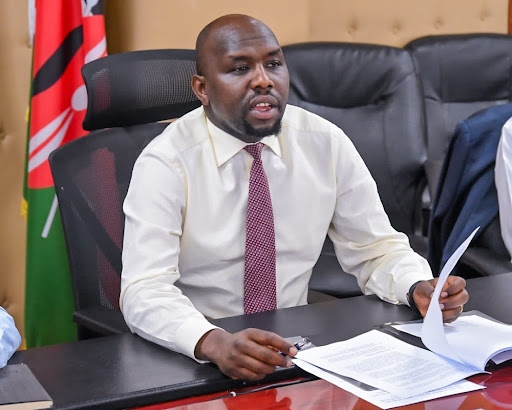The Catholic Men Association rallies behind a transformative call: good family, good church, good society.
This is not just a moral platitude but a profound statement on governance and sustainable development.
In Kenya, where leadership and governance challenges are often attributed to systemic failures, it is time to confront a more fundamental reality: our broken family and community structures.
The family is the crucible of leadership values.
Political sociologist Max Weber argued that leadership traits are learned rather than innate. In the family, respect for authority, moral responsibility and integrity are instilled.
Today, the disintegration of family values has bred a culture of corruption, nepotism and impunity in Kenya.
Leaders often reflect the dysfunction of their upbringing, perpetuating poor governance and a blatant disregard for the common good.
Bronfenbrenner’s Ecological theory emphasises that family, church, school and community shape an individual’s character.
A child raised in a stable, value-driven family is more likely to uphold ethical leadership. Conversely, chaotic family environments produce individuals who are susceptible to corruption and moral decay. Kenya’s persistent governance failures underscore this reality.
Despite constitutional reforms and stringent anti-corruption laws, our governance remains mired in impunity because the values of service, justice and accountability are absent where they matter most – at home.
This call for moral renewal is echoed in the recent documentary released by the Catholic Church during this Lenten period titled the Kenya We Desire.
The documentary highlights how Kenya’s governance crisis is deeply rooted in moral decay and societal disintegration.
It challenges Kenyans to reflect on the values of justice, peace and responsibility, calling for a collective commitment to rebuild the moral fabric of the nation.
The Catholic Church, through the CMA, recognises the urgent need to heal our leadership culture by first fixing the family.
The Church has historically played a pivotal role in advocating for good governance.
From championing multiparty democracy in the 1990s to calling out corruption today, the Church has been a beacon of moral leadership.
However, a church filled with morally compromised congregants struggles to hold leaders accountable.
Strong families produce faithful congregants who, in turn, hold leaders to ethical standards.
Yet, the influence of the Church must extend beyond advocacy to action.
The CMA is at the forefront of this mission.
Through programmes that mentor men on responsible fatherhood, ethical leadership and community service, the CMA aims to build a foundation of servant leadership rooted in Catholic Social Teaching.
As emphasised in Kenya We Desire, it is not enough to preach integrity; we must cultivate it at home.
A father who models servant leadership nurtures children who value justice and accountability. Communities reflect the collective values of their members.
Political scientist Robert Putnam highlighted the power of social capital—the networks of trust and cooperation that make societies function eff ectively.
In Kenya, our communities have normalised bribery, nepotism and mediocrity. We elect leaders who mirror our societal values.
This is why, despite constitutional and legal reforms, corruption persists.
The CMA seeks to disrupt this vicious cycle by championing servant leadership. Robert Greenleaf’s philosophy of servant leadership emphasises empathy, stewardship and a commitment to the growth of others.
These values, when instilled through family and reinforced the Church, create leaders who see governance as a responsibility, not a privilege.
In a society that values service over personal gain, sustainable development becomes possible.
One of Kenya’s biggest governance failures is the inability of public service systems to deliver efficient, fair and corruption-free services.
This failure is not simply a policy issue; it is a refl ection of our societal values. Value-led service delivery prioritises transparency and equity.
Public servants who operate within ethical frameworks shaped by strong family and community values are more likely to champion accountability.
As the Kenya We Desire poignantly illustrates, Kenya does er from a lack of policies or institutions; ers from a lack of values. Leadership is a mirror of society.
To fix our governance, we must first fix our homes. As members of the CMA, our mission is clear: reinforce moral and ethical values within households, strengthen the Church’s role as a moral compass for governance, and build accountable communities that reject corruption and uphold servant leadership.
By investing in family cohesion, moral teachings in churches and collective responsibility within communities, we lay the foundation for ethical governance.
If we want better leadership, we must demand it not only from our leaders but from ourselves.
As the Kenya We Desire reminds us, the transformation of Kenya begins at home.
Let the journey to rebuild our nation on the pillars of justice, responsibility and service start with each of us.












